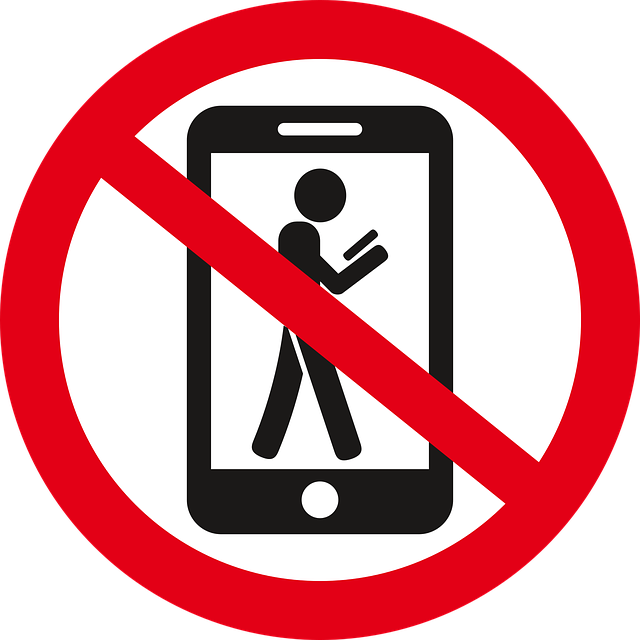Spam calls are a prevalent problem in West Virginia, but residents have legal recourse through the Telephone Consumer Protection Act (TCPA). To effectively stop spam calls, individuals can register on the Do Not Call Registry, block specific numbers, and consult specialized law firms or lawyers who handle TCPA cases. These professionals offer guidance, file complaints, and may seek compensation for unauthorized calls, empowering West Virginians to reclaim control over their phone lines and protect their privacy.
In West Virginia, as across the nation, spam calls remain a persistent and frustrating issue. Despite widespread belief that they’re merely nuisances, these unsolicited phone calls can violate legal boundaries set by the Telephone Consumer Protection Act (TCPA). This article navigates the reality of spam call laws in WV, addressing common misconceptions and providing effective strategies to help you stop spam calls once and for all. Discover how a spam call law firm or experienced lawyer in West Virginia can assist you in enforcing your rights.
Understanding Spam Calls: Defining Legal Boundaries in West Virginia
Spam calls are a pervasive issue in West Virginia, with many residents falling victim to unwanted and illegal telemarketing practices. To combat this problem, understanding the legal boundaries surrounding spam calls is essential. In West Virginia, the Telephone Consumer Protection Act (TCPA) provides specific guidelines on how businesses can conduct telemarketing activities, with strict penalties for violations. A spam call law firm or lawyer specializing in TCPA cases can help navigate these legal complexities and ensure businesses comply with the rules.
Knowing how to stop spam calls West Virginia involves familiarizing yourself with your rights as a consumer. If you’ve received unsolicited calls promoting products or services, especially those that are pre-recorded or use automated dialing systems, you may have grounds for legal action. By consulting with a spam call lawyer West Virginia, individuals can learn their options, file complaints, and potentially seek compensation for any harm caused by these unlawful practices.
The Reality of Spam Call Laws: What You Need to Know in WV
In West Virginia, the fight against spam calls is not just a consumer issue; it’s a legal one. The Telephone Consumer Protection Act (TCPA) is a federal law designed to curb unwanted phone marketing practices, including spam calls. Despite these laws, many residents still face an overwhelming influx of unsolicited calls. Understanding your rights under the TCPA is crucial in navigating how to stop spam calls in West Virginia.
A spam call law firm or experienced lawyer specializing in TCPA cases can offer guidance on effective strategies to combat this issue. These professionals can help you register on Do Not Call lists, block specific numbers, and even seek legal recourse if necessary. By leveraging the TCPA, residents of West Virginia can reclaim their phone lines from relentless spam callers, ensuring a quieter, more peaceful communication environment.
Misconception 1: It's Just a Nuisance, Not a Legal Issue
Many people in West Virginia consider spam calls merely a nuisance, something to be ignored or blocked with the push of a button. However, these seemingly harmless interruptions can escalate into significant legal issues. Spam calls are not just an annoyance; they are often a violation of federal and state laws, specifically the Telephone Consumer Protection Act (TCPA). This law firm in West Virginia specializes in representing clients against spam call lawsuits, helping them understand their rights and navigate the legal complexities involved.
If you’re dealing with relentless spam calls, it’s crucial to know that there are ways to stop them legally. Engaging a spam call lawyer in West Virginia can help you take action against these intruders, protect your privacy, and potentially seek compensation for any financial or emotional distress caused by their actions. Learn about your rights and How to Stop Spam Calls in West Virginia; don’t let these unwanted callers get away with it.
Debunking Myth 2: I Can't Do Anything About These Calls
Many people believe that they are powerless against relentless spam calls, but this couldn’t be further from the truth. In West Virginia, just like in many other states, there are laws in place to protect residents from these annoying and often illegal intrusions. Understanding your rights is the first step to taking action. If you’re receiving spam calls, don’t simply accept them as an inevitable part of modern life—there are effective ways to combat this issue.
One common misconception is that blocking numbers or changing your phone settings are the only options available. While these measures can help, they aren’t comprehensive solutions. A reputable spam call law firm in West Virginia, with expert lawyers specializing in TCPA (Telephone Consumer Protection Act) cases, can offer guidance and legal recourse. They can assist you in understanding your rights and taking the necessary steps to stop spam calls once and for all, ensuring that you’re not just temporarily silenced but permanently free from these unwanted interruptions.
Taking Action: Effective Strategies to Stop Spam Calls in West Virginia
In West Virginia, dealing with spam calls has become a widespread nuisance, but there are effective strategies to combat this issue. One of the primary steps individuals can take is to register their phone numbers on the Do Not Call Registry. This federal list restricts telemarketers from calling specific numbers for marketing purposes. Many spam call law firms in West Virginia specialize in helping residents navigate these laws and seek legal recourse against persistent violators.
Additionally, downloading reputable anti-spam call apps can significantly reduce unwanted calls. These applications often use advanced algorithms to identify and block spam. If you’ve been a victim of repeated spam calls, consulting a lawyer for TCPA (Telecommunications Consumer Protection Act) compliance in West Virginia is advisable. They can guide you on legal actions against spammers, ensuring your rights are protected under the state’s stringent spam call laws.






